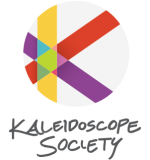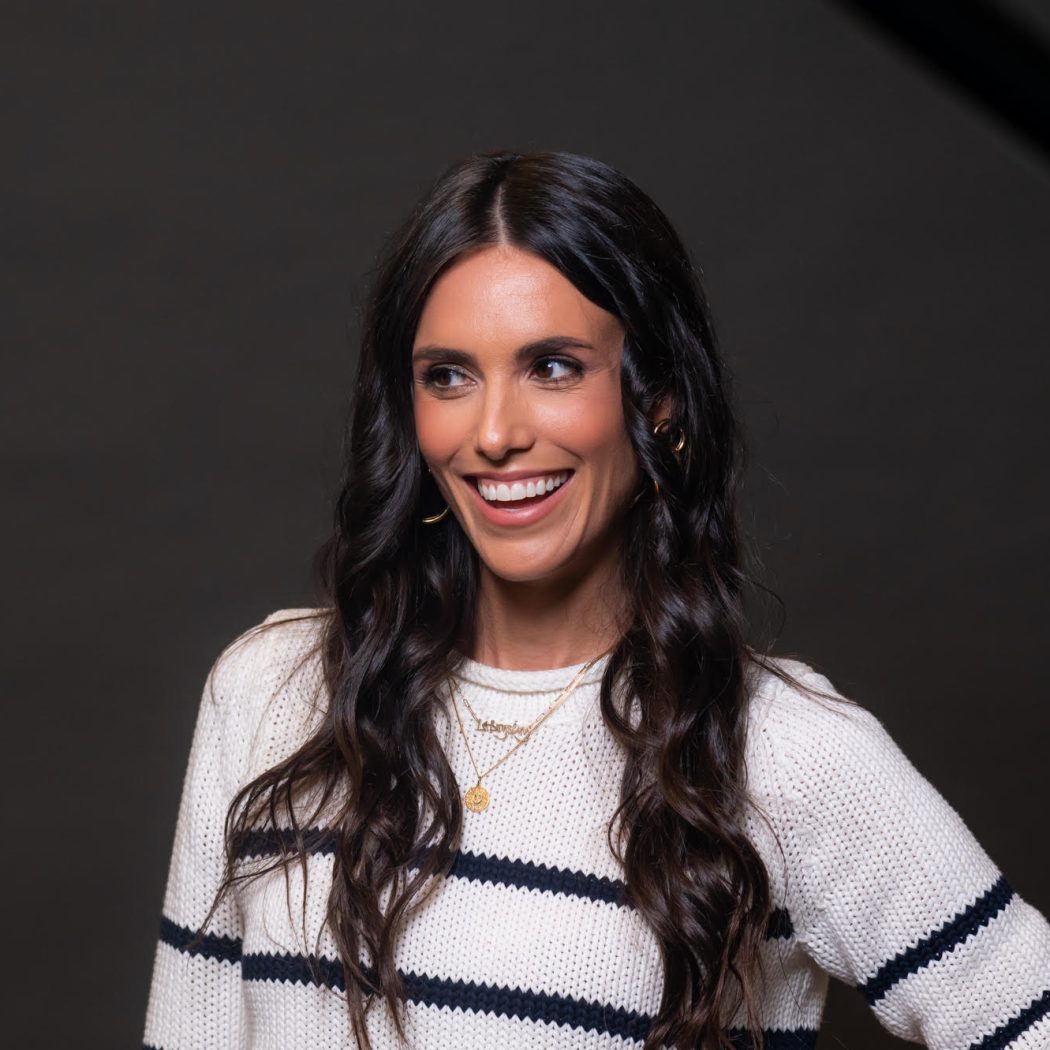Meet Liz Plank
Liz Plank is a Canadian journalist, filmmaker, executive producer of several critically acclaimed series at Vox media and NBC news, and bestselling author of For the love of men, book about mindful masculinity. She’s regularly featured on national and international television programs, providing her perspective on politics, gender issues, reproductive rights. Through her activism and creative approach to journalism, Liz has made it her mission to elevate the voices of those who are not often heard.
Like many women with ADHD, Liz Plank didn’t know that she had ADHD until she was an adult. This interview was recorded in the spring of 2021. I was in San Francisco Liz joined me on zoom from Montreal. She was quarantined in her parents’ house after moving out of Los Angeles.
Liz: I am in forced quarantine 14 days is the rule in Canada and I’m respecting it. So I am not leaving my house except for, you know, getting pizza outside my door delivered and yeah, I’m in Montreal for about a month and then I’ll be moving back to New York.
Margaux: So you’re following the rules. Growing up were you a rule follower or a rule breaker?
Liz: Well, it’s such a good question. I was extremely deferential to authority, you know, teachers, adults and, and all that jazz as like, a young girl growing up. But I also was very rigid with my own rules with myself. Rules about how I needed to perform or achieve certain things, but also weirdly routines were really important to me. I’m still a total creature of habit. I will eat the same thing every day. Like every breakfast is the same.
Margaux: What does your breakfast look like?
Liz: During the pandemic was oatmeal. Like every morning I had oatmeal and it was the same thing, same flavor, bananas, peanut butter. And then I shifted to cold cereal for six months. And so I’m in my cold cereal phase right now. For dinner, when I was living in New York, I would eat red Curry with tofu, like every night, so much so that once I ordered a different dish from the same Thai place and they called me and they were like, did you make a mistake? And I always used to say, like, if I die the Thai place will be the first ones to know, like they will tell the police because I will not show up.
So yeah, all kinds of different sort of routines calm me to know what I can predict. Because with ADHD and the anxiety that it can produce, there’s just a lot. Overwhelm, you know, there’s a lot of things that feel unpredictable. So anything that I can create that is predictable, I really cherish that.
Organizing my schedule has been one of the best things. Not checking email until the afternoon because those three or four hours in the morning is when I am the sharpest and I’m the least likely to have impulse control problems
Margaux: let’s talk about that because you have a lot going on, you just came out with the book you’re on all these TV shows, you’re producing your own show. I mean, you’re involved with so many interesting projects. So how do you manage your day-to-day, what tricks and tools and strategies have worked for you?
Liz: The beauty of having your own business is that you can choose to work on things that you find really interesting. And so that has been honestly, the number one thing for me that has allowed me to be able to organize my time and be able to reach deadlines and be able to juggle, you know, several projects is that I only worked on things that I really passionate about.
So that’s been kind of like a strategy to just make sure that I am really working on the trifecta of like, what you’re good at and what you find interesting and what you can make money.
And collaborating with people that understand what your strengths are. Coming into a job, if they want me to do something that’s super detailed oriented, where I’m managing people, for example, which is just not going to be like something that it’s going to be my strength saying, you know, this might not be the best use of me for this project.
It’s like swimming. I was a swimmer growing up and did synchronized swimming. And one of the things you really learned is you don’t have to spend that much energy if you know that the right technique. And I feel like that’s a good metaphor. That there’s certain things that I could do, like I could do data entry and look over very specific detail oriented things, but it would demand so much more energy from me. And maybe the return would not be that interesting. Whereas if I do this other thing, it’s not as demanding for me, I would enjoy it. And I’ll be good at it.
Internet writing clicked for me immediately, even though I hadn’t studied journalism. The thing with internet writing is it really short, and it’s deadline focused. My first job in journalism I had to write five articles a day, and I’ve never written before. And somehow that was easier than writing a book, six years into my journalism career. Writing the book I was alone. I didn’t have an editor to help me with those details and I had no deadlines. It’s just one giant deadline. And that was so much more difficult for me. And that’s when I actually ended up being diagnosed with ADHD.
My book writing revealed the dysfunction for me in my life.
I’m lucky that I got to land into a career path that was really tailored to my strengths. Which is, I think one of the most important things for people who have ADHD.
Margaux: Yea that’s really the heart of it. And you hit on so many important points here , Finding a way to build a career that builds on your strengths. What do you think are the strengths that you’ve been able to build on in your career?
Liz: I’m a sensitive person and I’m also tend to be sensitive to other people’s feelings. And to me, that has been the gift that I’m the most grateful for.
As a kid I stuttered, and sometimes it’ll pop up. I don’t struggle with it nearly as much as I did as a child. And it eventually kind of went away, but I, yeah, I had a stutter. I was teased. I couldn’t say my name because my name is really long Elizabeth. In French for some reason it just feels even longer. I remember struggling to say my own name in my first day in daycare. I remember feeling that that shame. I think that when you face any kind of obstacle or challenge, you have empathy for other people who face obstacles and challenges too, even if they’re different from yours. I feel like that maybe helped me not bully other kids, and instead, hopefully become the person that makes other people feel included and accepted in the way that they are. That was always a part of my personality, and I ended up doing a lot of volunteering with people with disabilities and working in that field. Sometimes I think maybe it was because I was a little bit different, so I was interested in other people who were different too. We should all be interested in in difference.
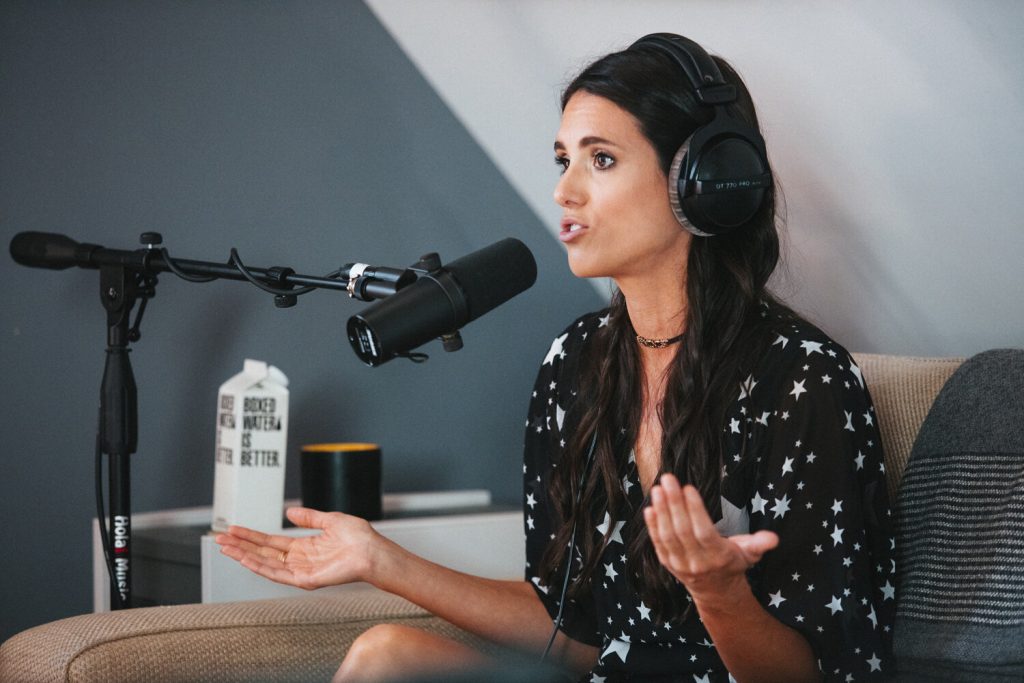
Margaux: When you talk about your mission in terms of elevating the voices of the unheard, I can see really clearly how your empathy and that sensitivity really comes through in your work. How did you get into the work that you’re doing?
Liz: So I was doing the masters in London and I’ve always been a sporty kind of person. So I started doing boxing, just like for fun. And the 2012 Olympics in London were happening at the time. And I saw this like article saying that they were going to force female boxers to wear skirts in the ring and because, so that they would look more elegant. And I just was like, wow, you know, it’s just so overtly sexist and also female boxing wasn’t even a discipline at the Olympics before that time. So it just tells you how outrageous this was. And so I just started a petition with change.org and they were like, can you write an article about it? And I literally said, I’m not a writer.
And they were like, just write it it’s for our blog. So I wrote this piece and they ended up submitting it to Huffington Post. And I was just like, in one of those most unbelievable moments. Like I just remember like staring at the screen and seeing my name and seeing my words.
And then the article went viral. I was getting like calls from BBC and the independent and interviewed on the radio. Like it was so surreal. And then the decision ended up being overturned because they’ve been so much press about it. I just couldn’t believe it. It just blew my mind.
Once I found writing on the internet, it was a whole new world for me. And so I started writing on the weekends, spending all my extra time on blogging. I would write about things that I found interesting and important. And then that’s when I moved to New York and I got hired as an intern. I earned myself a visa to work in the United States and got sponsored by this news startup and, and that changed my life.
Margaux: That’s pretty incredible that you we’re just moving through the world. You saw something that was messed up and you wrote an article without knowing that this chain of events would really catapult you into the spotlight and create this conversation that actually impacted policy. And then that brought you all the way to New York and then all of the amazing things you’ve done. I want to fast forward to your book “For the love of men: from a toxic to more mindful masculinity.” Tell us about the book. What should people know about it?
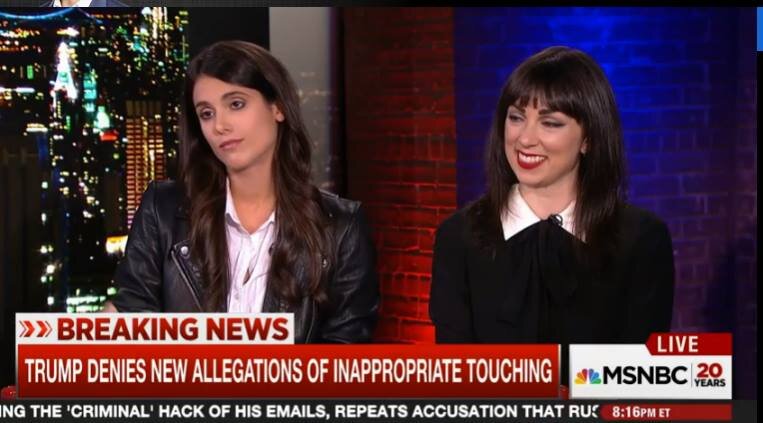
Liz: this was a book that I started writing when Donald Trump began running for president. And it was sort of clear that if we wanted to really have an impact and live in a feminist society we, women were good. Like women were good. They were not the problem. And then unless we have men at the table involved in these conversations and included and invested, then we’re just gonna keep doing this. We’re going to keep having conferences. We’re going to keep talking about it. And we’re keen to keep dying and being frustrated. So I started writing the book sort of calling men into feminism.
Having done a master’s degree and a bachelor’s degree and having been deeply invested in feminist studies and scholarship I knew how much women would be able to get out of it, but generally in the more mainstream kind of media, I didn’t see a lot of attention about how much men could benefit from feminism.
And once I started talking and interviewing men, I realized that if we were to able to just stop men from being victims of patriarchy, perhaps they would stop taking it out on women. So that was the sort of thesis of realizing. Oh, wow. Everybody wins if we live in a more feminist country.
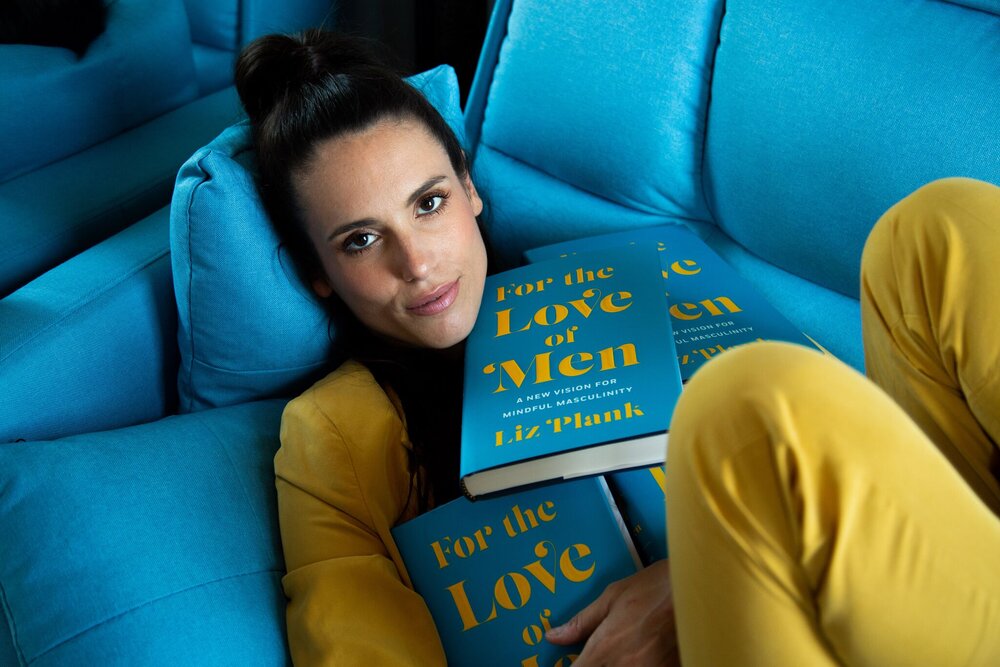
Margaux: Shifting a little bit to the intersection of gender and ADHD, when we look at the data 50-75% of women with ADHD go undiagnosed into adulthood, and we know there’s several reasons for that. One is bias in the medical system. And a lot of the research that was done in the 1970s with boys, particularly white boys. So, so that formed the diagnostic criteria. But also from a socialization standpoint, girls from a young age start to conform more than boys. We learned how to mask at a very young age, which is why another reason why a lot of women and girls with ADHD kind of go under the radar because we start masking and basically covering up and learning how to perform in a way that is rewarded and approved of. I was curious your perspective on that intersection.
Liz: That’s so interesting. I never thought about it as masking, but that makes so much sense. For example, my first real job, I was 16 and I was a lifeguard. My first year life guarding I worked at a kiddie pool cause that’s kind of like your point of entry.
The kiddie pools means that you are the only lifeguard. My first year at the kiddie pool, it was the job I was the worst at in my whole life. And I just remember feeling terrible about myself. I remember having a terrible relationship with my boss, where I constantly felt like she hated me and she was disappointed with me. Every time she would show up, I’d have my back to something and something would be happening. I was distracted.
If I would have known that I had ADHD, I wouldn’t have thought that there was something wrong with me all the time.
Liz Plank
I wouldn’t have had to be so hyper-vigilant all the time to make sure that I don’t make mistakes. I probably also would’ve made different decisions. Like maybe I would have ended up as a lifeguard, but maybe not. That’s probably not the most well-suited thing for me.
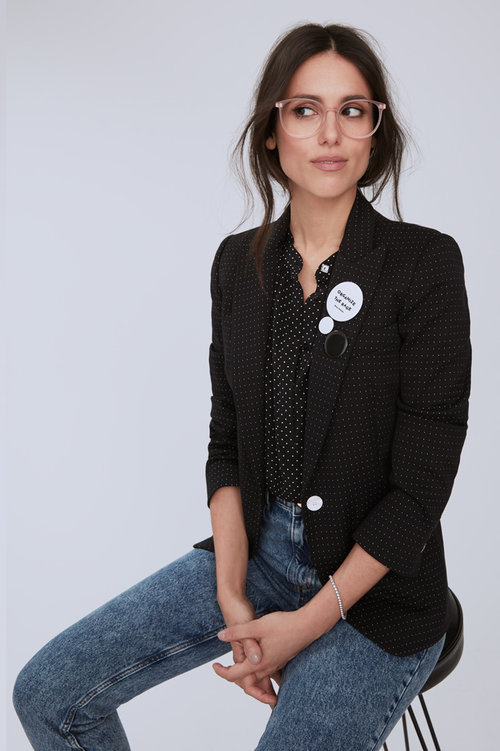
I remember in school, I was a good student but I never got a hundred percent. I was very demanding of myself and I worked really, really, really, really hard, but I, I didn’t work well. I didn’t work smart. And I lost so many things. I lost every lunch box. I was in the first grade and I just started going to school and I lost my Barbie lunch box, then I lost my Power Rangers lunch box.
I was in trouble. My parents were just like, “what is wrong with you?” And I remember feeling so disappointed in myself. I didn’t know how it would happen. It would just happen. I loved my Barbie lunchbox. I remember what it looks like, and just how like devastated I felt.
Margaux: If you could go back to that moment in time where you lost your lunch box and your parents had just chided you and you’re in your room… if you could walk up to little Liz and just put your arm on her shoulder, what words would you want to say to your younger self, knowing everything you know now?
Liz: Wow…I guess I would tell her, oh, “of course you’ve lost your lunchbox. Attention is hard for you and you have so many things going on in your head and you’re thinking about so many things and all those things are really important. So the lunchbox is not that important. You just got a new one, right?”
Losing things, being distracted is associated with being lazy with being careless. So I would tell her “it’s not your fault. Let’s figure out a system so that you don’t lose things that you like.”
That’s what my mom would say about my stutter. She was so sweet about it. She would say you just have so many great thoughts in your head and it’s hard for you to get them all out. It’s such a positive frame and it’s really helpful for me.
Margaux: That’s so important, being able to look back and say to yourself, it’s not your fault. ADHD, it’s not an excuse, but it’s an explanation. It can be an explanation that can help people heal. Now that you’ve gotten an ADHD diagnosis and you’ve started your journey to learn about ADHD, Is there a stereotype or misconception about ADHD that you would want to debunk?
Liz: Yeah. Oh my gosh. It’s not a great name. I do have a lot of hyperactivity, so it wasn’t totally weird to me. But hyperactivity is not my problem. I don’t have an attention deficit. I have a lot of attention, I just don’t put it in the right places. Like I put it so intensely into something that’s low on a priority list and so that means I don’t get to the thing that’s actually really important. So I feel like we need a new term to better express. We should get rid of deficit cause it’s not, it’s amazing.
I can be so hyper-focused and so creative. The real trip is that I wouldn’t want it any other way. I don’t want to be normal, or whatever normal means (none of us are). There’s nothing deficient about me, there’s something different about me. If it wasn’t presented as a deficit and more as a difference then maybe so many more of us would be able to understand how to build our lives differently, and understand how much more we bring to the table.
Margaux: Exactly there is no such thing as a normal brain and we are in a society that’s made up of minds of all kinds. So the sooner we can get out of this binary of thinking about brains as normal and not normal the sooner that we can create a better way of living and working and educating for everyone. You said it so beautifully.
You can connect with Liz and follow her updates on her Instagram @feministabulous. Learn more about her book For the Love of Men: A New Vision for Mindful Masculinity, and subscribe to her newsletter other projects on her website elizabethplank.com.
